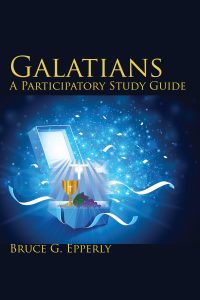Response to Misquoting Jesus VI
. . . in which, quite logically, I discuss chapter 5. 🙂
In Chapter 5, originals that matter, Ehrman first introduces the basics of textual criticism and tells us how textual decisions are made. This good overview, as he notes, will not prepare you to make textual decisions for yourself, but it will let you know how scholars function as they decide which variant to use in an eclectic text, and similarly which variant to translate in a Bible version.
Ehrman then discusses three textual variants with theological significance and in each case he disagrees the the general consensus on the appropriate text. These texts are:
- Mark 1:41
- Luke 22:43-44
- Hebrews 2:8-9
I have surveyed modern versions on these with some interesting results. I’m going to survey just a few translations, and then give my own opinion on each one. Ehrman deals with the theological and interpretive issues quite well in his discussion on each of these. My interest in this section is whether the non-scholar has ready access to this information. Please note that where I list translations supporting each option, I am not being exhaustive. Each list is a subset of the subset of translations I am using for this quick comparison. In each case a subscript f indicates that the translation in question indicates the alternate choice in a footnote.
Mark 1:41
The issue here is whether Jesus “had compassion” on the leper or “was angry/indignant.” The evidence for this variant is presented in the United Bible Societies Greek New Testament, 4th Edition (UBSIV), which is a common starting point for Bible translations, though note that most English versions make their own specific textual decisions and do not follow a particular Greek edition. UBSIV places “compassion” in the text and gives it a “B” rating.
The following translations support “compassion”: CEVf, ESV, KJV, NLTf, NRSVf, NETf, NKJV.
The following support “angry”: TNIVf, REBf
The best note here is in the NET. A strong case can be made for “angry” but the dominant reading in English translations is “compassion.”
Luke 22:43-44
Here the issue is the presence or absence of verses 43 and 44. Ehrman argues that the original text probably did not include those verses.
Versions including 43-44: ESVf, NKJV, KJV, CEVf, NLTf, REBf, TNIVf
Versions marking 43-44 in some way: NRSVf, NETf
Versions excluding 43-44: None
Again, the NET is to be congratulated on an excellent footnote. I would suggest that those who do not know Biblical languages but want to go deep into the text should access that version. It is available in an excellent online edition at NEXT Bible.
Hebrews 2:8-9
In this case the question is whether in verse nine it should say that Jesus tasted death “by the grace of God” or “apart from God.”
Versions supporting “by the grace of God”: REBf, TNIV, NKJV, KJV, ESV, NRSVf, CEV, NLT, NET.
No version supports “without God.” UBSIV rates “by the grace of God” as an A reading.
In this last case, the NET does not include a footnote.
Conclusions
I would conclude two things from this. First, in most cases, one can access significant textual differences through various English versions. While the NET has the best notes for the first two examples, it has none for the last, which is only noted by the NRSV and the REB. This is a good argument for using multiple versions and reading the footnotes.
In addition, if people paid more attention to the resources available to them things that Ehrman points out in his book would be much less shocking to them.
Discussed in study notes (Learning Bible, Oxford Annotated, Oxford Study)


